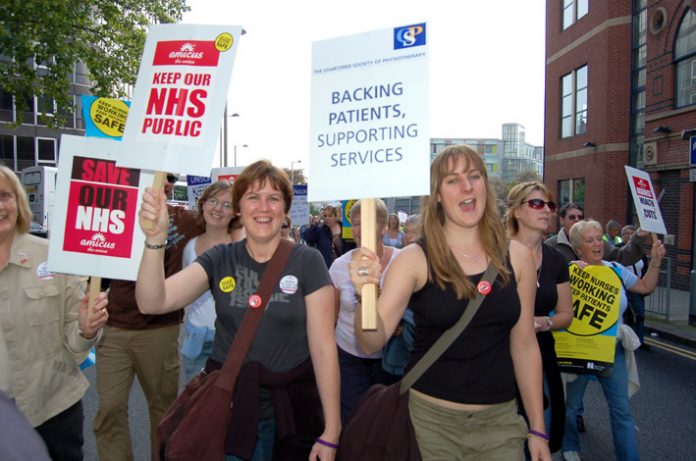
The secrecy surrounding Labour’s favoured Independent (private) Sector Treatment Centres (ISTCs) has been slammed by the government’s own watchdog.
Healthcare Commission chief executive Anna Walker complained that a lot of private treatment centres did not provide contractually required ‘hospital episode statistics data returns’.
She said yesterday: ‘There is a paucity of the exact data that is critical to effectively manage and regulate these services.’
The Orthopaedic surgeons’ professional body has slammed the quality of surgeons in the private centres and warned that patients are suffering, with the NHS having to deal with complications after minor operations carried out by the centres.
Mr John Getty, the President of the British Orthopaedic Association told New Line yesterday: ‘We have always had concerns. It is always important to provide enough beds and nursing care.
‘There was no consultation with the British Orthopaedic Association.’
Getty said: ‘Patients are taken from the NHS, relatively fit patients. The only time we see them is when they come back with complications.
‘There has been higher rates of complications (from ISTCs) than would be expected, higher than those coming back from the NHS.’
He said that patients were not so much concerned with the curtains and the carpets but the ‘outcomes of operations’ such as hip and knee replacements.
Getty insisted: ‘The same standards should apply to ISTCs as apply in the NHS.’
A British Medical Association (BMA) spokesman told News Line: ‘We share concerns raised about the lack of statistical information on the quality and effectiveness of ISTCs.
He said that the BMA shared the Health Select Committee’s concerns over whether ISTCs were ‘value for money’ because there are very few statistics available.
The BMA knows of ‘cases where there have been concerns over the standards of care.
‘Their (ISTCs) effect on training of junior doctors – orthopaedic surgeons have particular concerns over work going into the private sector affecting training.’
The concern over private centres which get contracts for thousands of operations and are paid whether they carry them out or not, follows the BMA survey of Accident and Emergency staff who revealed that bed cuts made by desperate NHS Trusts facing deficits were damaging the work of casualties.
‘NHS debt is taking its toll on accident and emergency (A&E) departments in England’, the BMA said on Wednesday at the launch of a new report on A&E waiting times.
Indicating a return of patients on trolleys in hospital corridors, the BMA survey found: ‘Two-thirds (66 per cent) of respondents said that some patients may be moved to inappropriate areas or wards and over half (58 per cent) reported that patients may be discharged from A&E before they had been adequately assessed or stabilised.’
The survey also found that 19 A&E departments in England were at risk of closure and 42 respondents reported that their department could be downgraded.